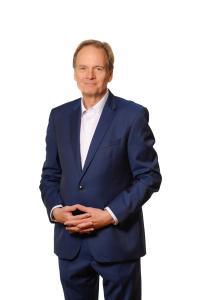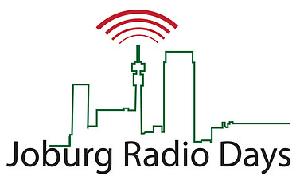Radio Days: Chances And Challenges For An Important Medium - Media Programme Sub-Saharan Africa
Event Reports
In the frosty winter week of 4-6 July 2012, professionals from business, politics and science met at the University of Witwatersrand (WITS) campus in Johannesburg, South Africa to examine the following central questions: What consequences does technological and social change have on the traditional medium? Are there successful business strategies for broadcasters to assert themselves in a multi-media environment? And: What role does so-called ‘community radio’ plays in the local development of rural areas in Africa?
The Joburg Radio Days are the most important international radio symposium in the region and are organized in time-honoured fashion by the WITS Radio Academy, with on-going support from KAS Media Africa. In the context of KAS Media Africa’s overall goals, the present report focuses on the following key topics: The effects of digitalisation and mobile communication on radio journalism in the region, community radio as an agent of local development, as well as limited media diversity and granting of licences in Zimbabwe.
The opening session with the title, “The current state and future challenges of an old medium”, set the theme of the conference and reflected the contrasting opinions on the topic. According to the British radio expert, James Cridland, radio is not dying out at all. Merely the way it is used is changing: “The forms of broadcasting, producing and consuming is multiplying. These days radio is at home on multiple platforms.” Furthermore, digitalisation should be viewed as a chance to create authentic interaction with the listener. Anthony Duke, co-founder of the first independent South African radio station, Capital Radio, had a different opinion. According to Duke, the audience barely switches to the internet since the majority of listeners in southern Africa do not even have internet access. Digitalisation is not important for the survival of the broadcasters, but rather their content and quality.
Throughout the conference the internet’s fundamental relevance for the radio of the future was repeatedly emphasized. The diversity of the radio landscape is increasing rapidly. The general belief was that, in the long run, radio and the internet would merge and be used on mobile products such as Smartphones and Tablets. In addition, interaction with the audience via social media platforms such as Facebook and Twitter will become increasingly important.
This opinion was also shared by Mandla Soko, General Director of Radio at the public radio station, SABC. The listeners were sceptical, however, when he proposed a state regulation to shape the increasing digitalisation of radio. The government, according to Soco, must also establish mandatory rules and licences in the World Wide Web. However, the question of how such a regulation would look in practice was left unanswered.
“Community radio gives a voice to the voiceless,” claimed the activist, Gabriel Urgoiti, “in fact, it finally lends an ear to the cries of the disadvantaged.” The speaker from Argentina quickly captured the audience’s attention as he spoke about his commitment to community radio in its role as a local and non-commercial citizen media in South America and South Africa. In his opinion, community radio is a central component of a pluralistic media landscape.
Particularly in rural areas in Africa, they even play an important role in the development and improvement of communities – people who contribute to the radio station and learn how to articulate their needs and problems. Furthermore, they acquire important skills which increase their employment chances. Urgoiti stipulates, though, that local communities must stay in possession and control of community radio stations so they remain true to their non-commercial character.
Truth Radio, which was organised by prisoners in the high-security prison, Pollsmoor near Cape Town, is one of the most exciting examples of community radio that was presented at the Radio Days. Radio improves the mood in prison and aids in the re-socialisation of prisoners, according to Marius Boaden, Director of Truth Radio. A contrary example was presented by the Kenyan radio expert, Esther Macharia. In her home country, community radio stations are active participants in racist agitation and defamation. “In Kenya almost every ethnic minority has its own radio station. Local politicians partly exploit them to their own end and openly incite violence.” As a solution to the ambivalent role of community radio, a national umbrella organisation was suggested which would, on the one hand, provide a unified voice in facing the government and, on the other hand, could give an early warning against xenophobic propaganda.
Just like at the2011 Radio Days, South Africa’s neighbour Zimbabwe was also a hot topic this year. Last year the Zimbabwean government t announced the awarding of commercial radio licences. Many applicants, however, were left empty-handed as only one licence was granted, to the pro-government Director of AB Communications, Supa Mandiwanzira. A lively discussion was sparked at the Radio Days 2012 when Mandiwanzira came up against two of his licence adversaries, John Masuku and Gift Mambipiri, who had strived in vain for a broadcasting permit. Masuku and Mambipiri were extremely critical of the government’s process of awarding licences. “Supa Mandiwanzira is a further example of how power stays in the hands of regime loyalists. The broadcasting reform in Zimbabwe is a sham reform,” explained Mambipiri. In the face of criticism, Madiwanzira asserted that his rivals simply wrote the worse application. Furthermore, his political views and activities should be a private matter. Overall, the conference participants were pleased that even one commercial radio licence was awarded in Zimbabwe. However, this is just a small step toward a pluralistic and independent media landscape. No doubt, the limited freedom of opinion in Zimbabwe will continue to be a central issue at the conference in the years to come.
Markus Brauckmann, Director of KAS Media Africa: “The Radio Days have impressively underlined that it really is an assembly of first-rate professionals and meaningful discussions. The traditional medium radio remains on our agenda and we will continue to support the conference to the best of our ability.”




